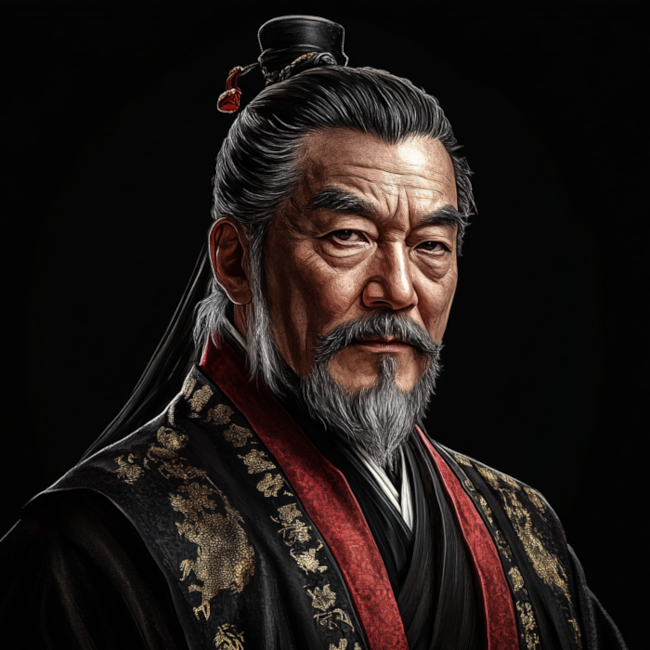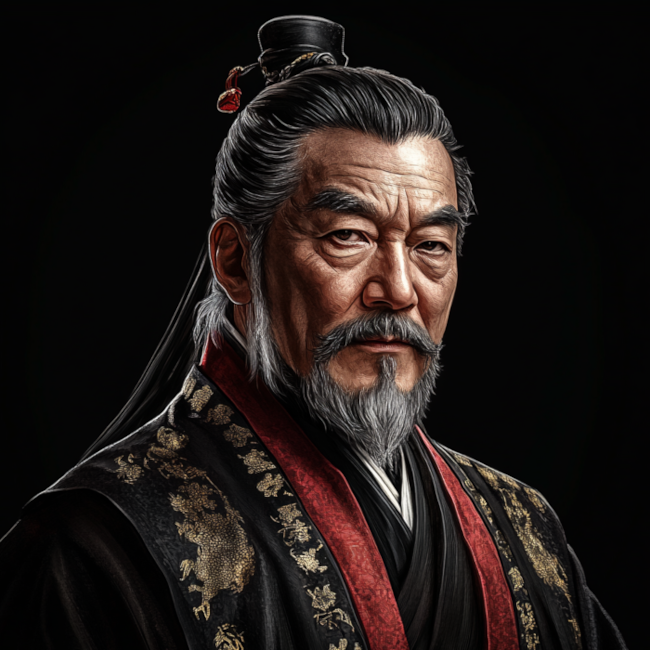


Sun Tzu (circa 544–496 BCE) was an ancient Chinese military strategist, general, and philosopher, best known as the author of The Art of War, one of the most influential works on military strategy and tactics in history. Although details of his life are sparse and often shrouded in legend, Sun Tzu's ideas on warfare, strategy, and leadership have had a profound impact on both Eastern and Western military thinking, as well as on business, politics, and sports.
Historical Context: Sun Tzu is believed to have lived during the Spring and Autumn period (approximately 771 to 476 BCE) of Chinese history, a time marked by political fragmentation, frequent warfare, and the rise of various states vying for power. This period set the stage for Sun Tzu’s emphasis on strategic thinking and the efficient use of resources in warfare.
Life and Career: According to traditional accounts, Sun Tzu was born in the state of Qi (in modern-day Shandong province) and later served as a general and military strategist for King Helü of the state of Wu. His military prowess is said to have helped the state of Wu achieve significant victories against its rivals, particularly the state of Chu, solidifying his reputation as a brilliant strategist.
Legends and Anonymity: Much of what is known about Sun Tzu comes from historical texts like the Shiji (Records of the Grand Historian) by Sima Qian, written centuries after Sun Tzu's time. However, some historians debate whether Sun Tzu was a single historical figure or a composite of various military thinkers. Despite this, the influence attributed to Sun Tzu remains significant, with The Art of War being central to his legacy.
Content and Structure: The Art of War is composed of 13 chapters, each dedicated to different aspects of warfare, including strategy, tactics, logistics, espionage, and leadership. The text is known for its concise and aphoristic style, making its teachings both accessible and profound.
Key Themes:
Impact on Military Thought: The Art of War has been studied by military leaders and strategists across the world for centuries. It has influenced military doctrine in China, Japan, Korea, and beyond. Notable military figures such as Napoleon, Mao Zedong, and General Douglas MacArthur are said to have drawn inspiration from its teachings.
Business and Management: In modern times, The Art of War has found widespread application in business and management. Its principles of strategy, competition, and leadership have been adapted to corporate strategy, negotiation, and organizational behavior. Executives and entrepreneurs often cite Sun Tzu’s insights on understanding competitors, maximizing strengths, and capitalizing on opportunities as valuable guides in the business world.
Politics and Diplomacy: Sun Tzu’s ideas have also been applied to politics and diplomacy. His emphasis on strategy, negotiation, and alliance-building is relevant to international relations, where understanding the balance of power and the motivations of other states is critical.
Sports: Coaches and athletes have used The Art of War as a guide for competitive sports, drawing on its principles of preparation, mental toughness, and strategic thinking to achieve success.
Enduring Legacy: Sun Tzu’s influence extends far beyond his lifetime, and his work continues to be studied and respected around the world. The principles outlined in The Art of War are timeless, offering wisdom not only for military leaders but also for anyone facing challenges that require strategic thinking and careful planning.
Global Reach: The Art of War has been translated into numerous languages and is widely read across different cultures. It remains a required text in military academies and business schools around the globe. Its impact on both Eastern and Western thought is profound, making it one of the most significant works on strategy ever written.
Popular Culture: Sun Tzu and The Art of War have permeated popular culture, appearing in films, literature, and even video games. The principles of the text are often invoked in discussions of competition, strategy, and leadership in various contexts.
Sun Tzu’s The Art of War is a seminal work that has influenced military strategy, leadership, and strategic thinking for over two millennia. His teachings on the importance of strategy, understanding one’s strengths and weaknesses, and the role of effective leadership continue to resonate in a wide range of fields, from warfare to business, politics, and beyond. Sun Tzu’s legacy as a master strategist endures, making him a timeless figure whose wisdom remains relevant in the complexities of the modern world.

We use cookies
We use cookies and other tracking technologies to improve your browsing experience on our website, to show you personalized content and targeted ads, to analyze our website traffic, and to understand where our visitors are coming from. Privacy Policy.